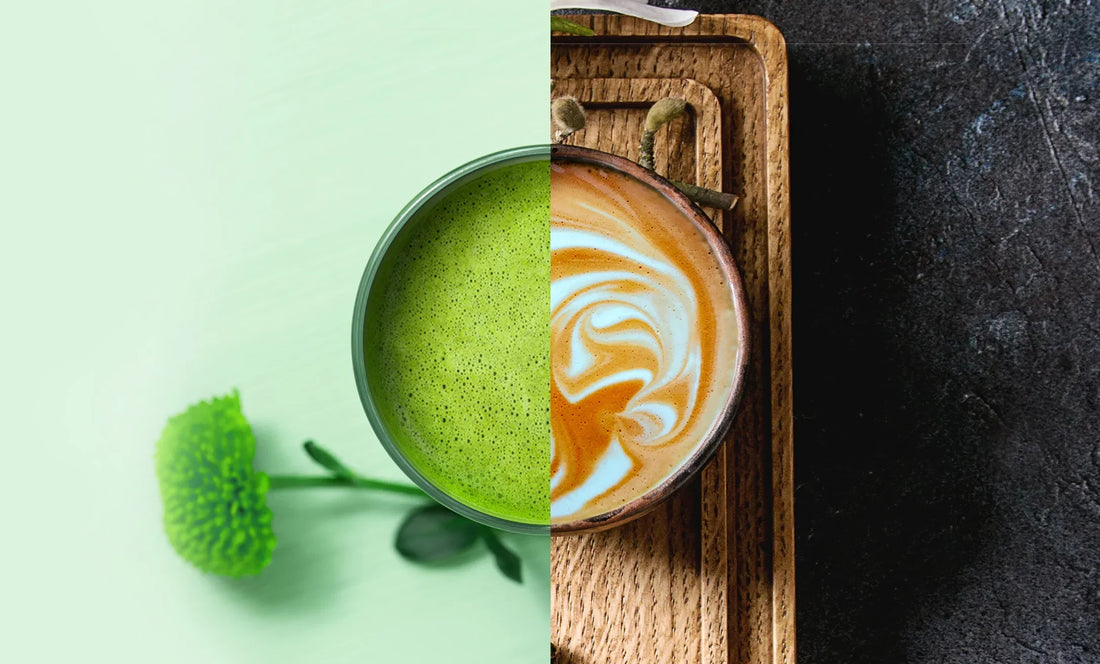
Matcha vs. Coffee: Choosing Calm Energy Over Jitters
Share
In today’s fast-paced world, staying alert and focused is a daily priority. For many, coffee is the usual choice, but it can sometimes leave you feeling a bit too wired. Matcha green tea, on the other hand, is valued for its smooth, sustained energy and grounding ritual.
What Makes Matcha Unique?
Unlike coffee, matcha contains both caffeine and L-theanine, a naturally occurring amino acid found in green tea. This combination has been associated with a feeling of alert calmness. Many enjoy matcha for its steady, focused energy that complements daily routines without feeling overstimulated.
A Moment of Mindfulness
Matcha invites you into a slower ritual. Whether you whisk it traditionally or use a modern tool, preparing matcha is a chance to pause, breathe, and reset. It’s not just a beverage; it’s a moment of presence.

Matcha vs. Coffee: A Simple Comparison
|
Feature |
Matcha |
Coffee |
|
Energy feel |
Gradual & balanced |
Quick boost, then decline |
|
Contains L-theanine |
✔ Yes |
✘ No |
|
Traditional ritual |
✔ Yes, Japanese tea culture |
✘ Often grab-and-go |
|
Enjoyed with intention |
✔ Often mindful |
✘ Usually consumed quickly |
Who Might Enjoy Matcha?
- People who are seeking a gentle, steady energy option
- Individuals interested in mindful daily rituals
- Those looking for a calming alternative to highly caffeinated drinks
FAQs
Q1: Does matcha have more caffeine than coffee?
No. Matcha typically contains less caffeine than a standard cup of coffee.
Q2: Can I drink matcha in the afternoon?
Yes. Many enjoy it in the afternoon or early evening, depending on personal sensitivity to caffeine.
Q3: Will matcha stain teeth like coffee?
Matcha tends to be gentler on tooth enamel, and some people notice less staining.
Try DōMatcha® today and bring balance to your daily energy with a delicious ritual.
Explore our blends →